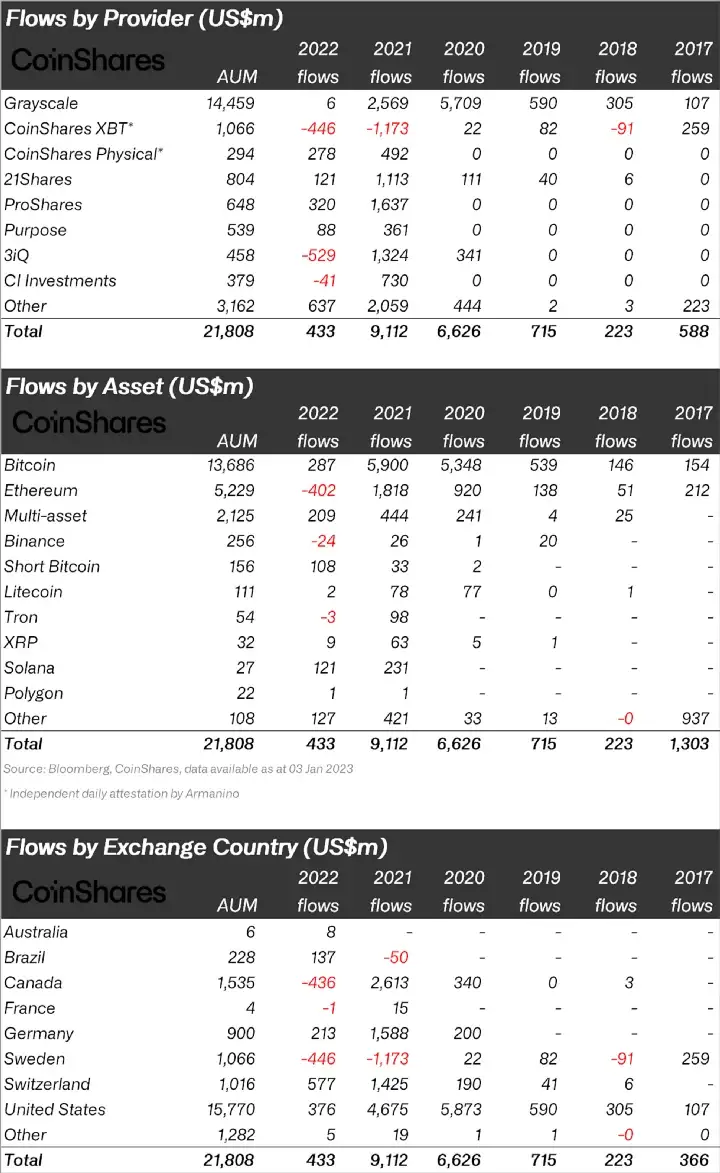Table of Contents
According to data from crypto investment firm CoinShares, crypto fund investments in 2022 were the lowest they have been in the last four years.
There were US$433 million entering crypto products last year, a 95% and 90% decrease from US$9.1 billion in 2021 and US$6.6 billion in 2020 respectively. However, the 2022 total was almost double the level seen during the 2018 bear market, which saw US$233 million flow into digital asset products, specifically exchange-traded products and investment instruments including Grayscale's Bitcoin Trust and Digital Asset ETPs from 21Shares.

"In a year where bitcoin prices fell by 63%, a clear bear market precipitated by irrational exuberance and an overly hawkish FED, it is encouraging to see investors on the whole still choosing to invest, and in many cases tactically adding to positions during price weakness," James Butterfill, CoinShares head of research, wrote in the report.
Read more: Funds Bet Big Even as Battered & Bruised Cryptocurrencies Face More Pain Ahead
Butterfill also noted that Bitcoin and multi-asset investment products were the "main beneficiaries" from investors, recording inflows totalling US$287 million and US$209 million respectively. However, he highlighted that Ethereum had a "tumultuous year," most likely due to investor concerns over the network's transition to PoS (Proof-of-Stake) and continued issues over the timing of un-staking, which he believed will happen in Q3 2023.
Blockhead's take
The global crypto market capitalisation has tumbled from US$2.3 billion at the start of 2022 to approximately US$800 million by the end of the year. Therefore, a decrease in inflows into the overall crypto markets should be expected in 2023, as risk appetites continue to be sapped given the current macroeconomic landscape.
However, while the retail market is likely to remain dormant, institutional investments into crypto could actually drive the industry forward, especially because the FTX debacle will likely result in better risk management practices and increased regulatory scrutiny, which can benefit the industry in the long term
Emerging trends such as the tokenisation of real-world/traditional assets, "institutional grade" DeFi, and stablecoins could also attract investments from institutions.







